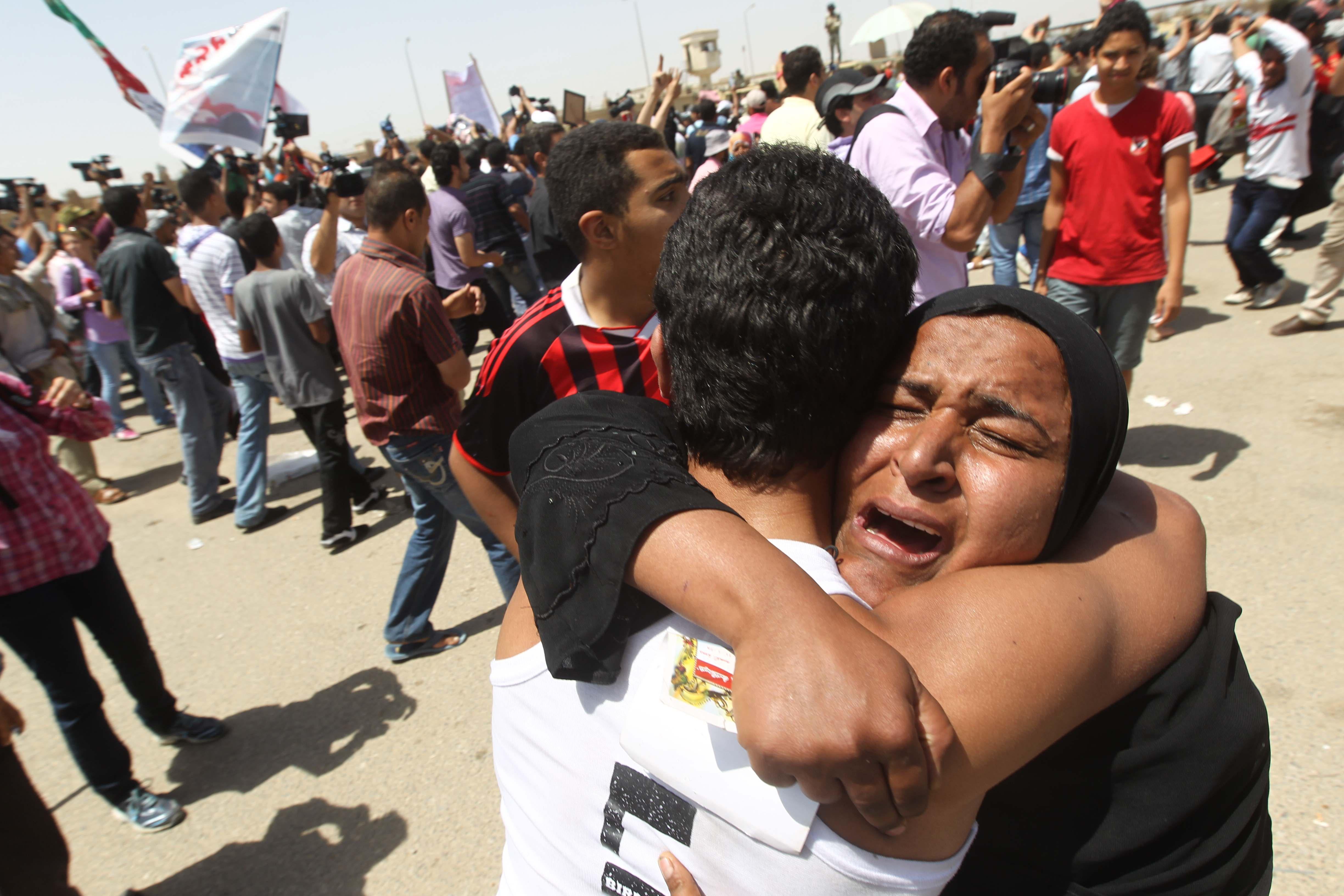A couple of years ago, there was a popular joke in Egypt that went like this. The day before the presidential election, the prime minister goes to see Hosni Mubarak. He tells the president, “Although I am sure you won’t need it, just in case, you should probably prepare a farewell address to the Egyptian people.”
Mubarak replies, “Why? Where are they going?”
At the time, Egyptians were engaged in rampant speculation that their president of nearly three decades might be finally departing the scene. There was no suggestion he planned to step down. Rather, he was lying in bed at Heidelberg University Hospital in Germany, recovering from emergency surgery. Back then, the only thing Egyptians thought could rid them of their dictator was his own mortality.
Today, a judge did it for them. On Saturday, the former Egyptian president was sentenced to life in prison for his role in the killing of nearly 1,000 protesters who rose up against his regime last year. Mubarak is the first dictator ousted during the Arab Spring to be tried by his own people. His reviled henchman, former Interior Minister Habib al-Adli, also received a life sentence. Both men are expected to appeal the court’s decision.
The verdict will not satisfy many Egyptians. Some will resent that Mubarak’s sons, Gamal and Alaa, were acquitted of corruption charges based on a statute of limitations. (Mubarak and another businessman linked to the old regime were acquitted of the corruption charges as well.) Although Mubarak, a father figure for the country, still has some sympathizers, Gamal and Alaa are widely seen as corrupt opportunists who had every intention of maintaining the Mubarak dynasty for their own benefit. They were not set free, however. Both sons are being held to face charges of insider training announced by Egyptian prosecutors earlier this week.
The more chilling part of the verdict is the acquittal of four senior police officers accused of giving the shoot-to-kill orders in Tahrir Square. The judge indicated that these acquittals stemmed from the prosecution’s failure to present sufficient evidence. Disturbingly, this portion of Saturday’s verdict fits a wider emerging pattern. According to Human Rights Watch, since March 2011, Egyptian prosecutors have filed at least 26 cases that charge more than 150 high and low-ranking police officers with killing or injuring protesters during the 2011 uprising. Most of these cases are either still pending or have resulted in acquittals. According to the Egyptian Initiative for Personal Rights, a respected Egyptian NGO, witnesses have come under pressure to alter their testimony, while victims and their families have been pushed to withdraw their claims. Only two police officers have been given prison sentences for the deaths of 19 people.
All of which suggests the shallowness of the changes to the Egyptian security state that Mubarak left behind. The appearance remains of a regime circling its wagons to protect its own. That appearance is heightened by the fact that Ahmed Shafiq, Mubarak’s last prime minister and a former commander of the Egyptian Air Force, is now in a runoff to be Egypt’s next president.
It is worth remembering that it wasn’t always obvious that Mubarak would become one of the Middle East’s longest-serving dictators. When he inherited the presidency after the assassination of Anwar Sadat in 1981, he cut a very different figure from his predecessor. A month before his death, Sadat had locked up more than 1,500 political prisoners. Academics, journalists, lawyers, and politicians were all thrown into Tora Prison. When Mubarak became president, he began releasing them immediately. The early Mubarak claimed that “democracy is the best guarantee of our future” and he had “no wish to monopolize decision making.” Opposition political parties were allowed to reopen their doors. The number of NGOs and civil society groups grew. Mubarak even suggested that no one should be president for more than two terms.
Obviously, he changed his mind. Despite his talk of “democracy in doses,” a relatively weak and politically inexperienced Mubarak was playing a different game back in the ‘80s: He was buying himself time. And Egypt’s public figures, including those who had just been released from prison, accepted the small, incremental reforms Mubarak offered in exchange. Near the end of Mubarak’s days in power, the human rights activist Gasser Abdel-Razek told me, “The creation of the dictatorship we have started the day [Mubarak] took office and people decided not to push him.”
After the verdict was read Saturday, Mubarak was delivered to Tora Prison by helicopter. Tonight he will spend his first night in prison. (Until now, he has been held in a military hospital.) But a dictator in prison is not a political system remade. Whoever wins the country’s presidential election later this month, Egyptians must keep pushing. Mubarak may be behind bars, but as today’s verdict revealed, their work is not even half done.
